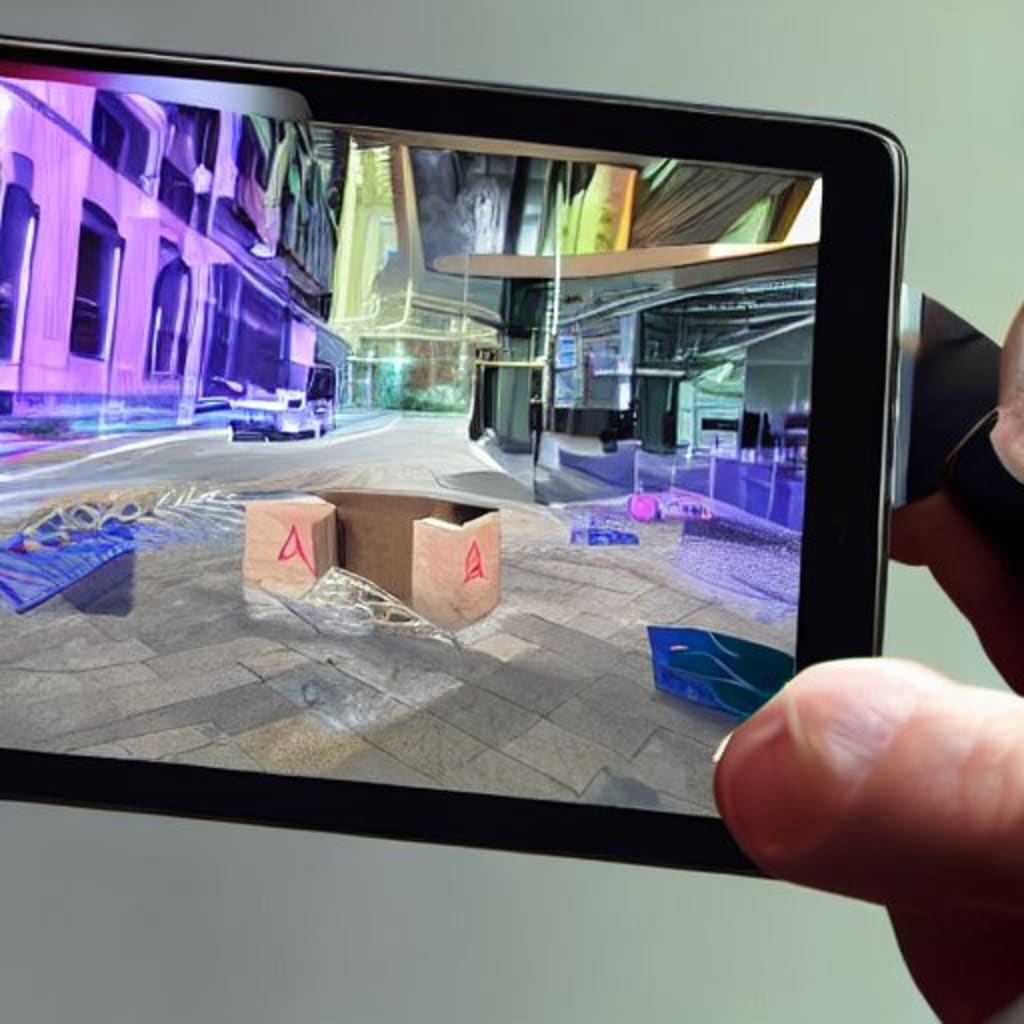AUGMENTED REALITY
EXPLORING THE FUTURE OF IMMERSIVE EXPERIENCES

Augmented Reality (AR) is a groundbreaking technology that overlays digital content onto the real world, blending virtual and physical environments seamlessly. With its ability to enhance our perception of reality, AR is poised to transform industries, revolutionize entertainment, and reshape the way we interact with our surroundings. This article delves into the potential of augmented reality and its impact on various sectors, from gaming and education to healthcare and retail.
Understanding Augmented Reality
Augmented Reality is an immersive technology that superimposes computer-generated content, such as images, videos, and 3D models, onto the user's real-world environment. Unlike Virtual Reality (VR), which creates a fully simulated digital environment, AR enhances the existing surroundings with interactive digital elements. AR experiences can be accessed through smartphones, tablets, smart glasses, and other wearable devices.
Applications of Augmented Reality
a) Gaming and Entertainment: AR gaming experiences like Pokémon Go have captivated millions of users, showcasing the potential of combining virtual and real-world elements. AR offers gamers the opportunity to engage in interactive and immersive experiences, blurring the boundaries between the physical and digital realms.
b) Education and Training: AR can revolutionize education by providing interactive and engaging learning experiences. From virtual science experiments to historical reenactments, AR enhances understanding and retention through visualizations and simulations. Additionally, AR offers practical applications in training scenarios for industries such as medicine, aviation, and engineering.
c) Healthcare and Medical Visualization: AR has the potential to revolutionize healthcare by enabling medical professionals to visualize complex data, such as patient scans and anatomical models, directly on the patient's body. Surgeons can utilize AR overlays during procedures, enhancing precision and reducing risks. Furthermore, AR can assist in training healthcare professionals and improving patient outcomes.
d) Retail and E-commerce: AR transforms the shopping experience by allowing customers to virtually try on clothing, visualize furniture in their homes, and preview products before purchase. This immersive technology bridges the gap between online and physical retail, providing a more engaging and personalized customer experience.
Advancements in Augmented Reality
a) Wearable Devices: Smart glasses and headsets designed specifically for AR experiences are becoming more sophisticated and accessible. These devices provide a hands-free and immersive AR experience, allowing users to interact with digital content seamlessly.
b) Spatial Mapping and Object Recognition: AR technologies are advancing in their ability to understand and map physical spaces accurately. This enables AR applications to interact with the environment, recognize objects, and provide contextually relevant information.
c) Haptic Feedback and Sensory Integration: The integration of haptic feedback, such as touch and vibration, enhances the realism of AR experiences. This sensory integration adds a new level of immersion by engaging multiple senses simultaneously.
Challenges and Considerations
Despite its potential, AR faces several challenges. The technology requires robust hardware capabilities, such as powerful processors and high resolution displays, to deliver seamless and immersive experiences. Additionally, ensuring user privacy and data security is crucial in an augmented reality ecosystem, as AR relies heavily on real-time data capture and analysis.
The Future of Augmented Reality
The future of augmented reality holds tremendous promise. As technology advances, AR experiences will become more sophisticated, interactive, and seamlessly integrated into our daily lives. From improved social interaction to personalized advertising, AR will continue to reshape industries and revolutionize the way we perceive and interact with the world around us.
Augmented Reality is set to redefine our understanding of reality by blending the digital and physical experience. whereby there is a need to experience the emergence of new knowledge in digital exploration and advancement of future simplified gadgets of such nature.
About the Creator
Gerhard Weiko
i am an independent freelancer and a motivated content creator based and influenced by future developments and ideal ideology for the sustainment of the green welbeing global advancement.






Comments
There are no comments for this story
Be the first to respond and start the conversation.